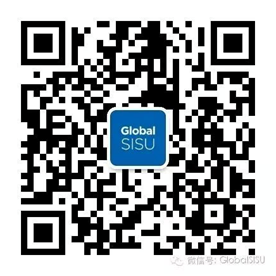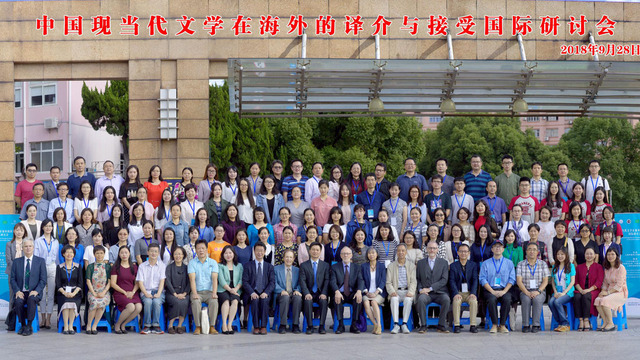
International symposium on Translated Chinese Literature and Its Reception Outside China
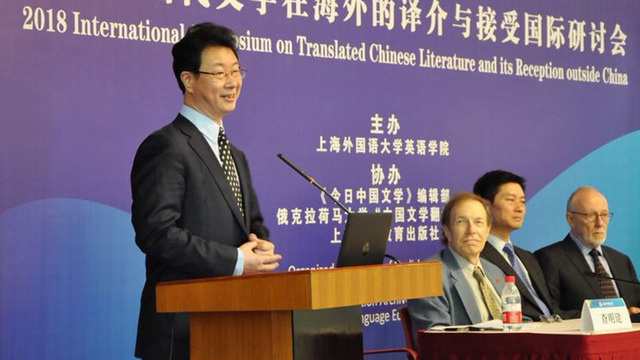
Prof. Zha Mingjian, dean of SES, SISU, hosting the symposium
2018 International symposium on Translated Chinese Literature and Its Reception Outside China
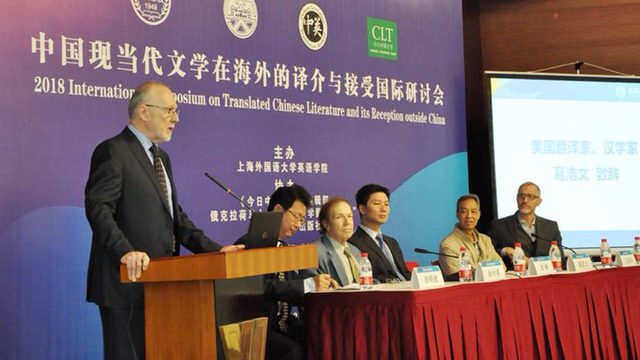
Prof. Howard Goldblatt delivering opening speech
2018 International symposium on Translated Chinese Literature and Its Reception Outside China

Launching of the Research Center for Modern Chinese Literature Translation
2018 International symposium on Translated Chinese Literature and Its Reception Outside China
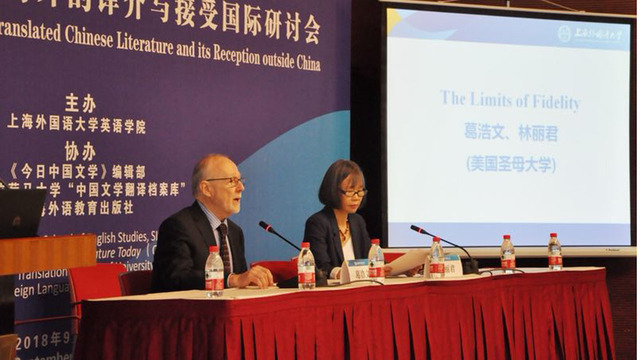
Prof. Howard Goldblatt and Prof. Sylvia Li-Chun Lin delivering keynote speech
2018 International symposium on Translated Chinese Literature and Its Reception Outside China

Prof. Jonathan Stalling delivering keynote speech
2018 International symposium on Translated Chinese Literature and Its Reception Outside China
Hosted by School of English Studies (SES), and co-organized by the editorial board of Chinese Literature Today, Chinese Literature Translation Archive (CLTA) at the University of Oklahoma, and Shanghai Foreign Language Education Press, the 2018 International symposium on Translated Chinese Literature and Its Reception Outside China was successfully held in Shanghai International Studies University (SISU) on September 28, 2018. Over 130 experts and scholars from at home and abroad in the studies of modern and contemporary Chinese literature, translation, and foreign languages participated in the symposium. The participants not only had in-depth discussions about the translation, dissemination and reception of modern and contemporary Chinese literature, but also proposed ways of canonizing it in cultures outside of China.
Attendees of the opening ceremony include translators and sinologists Prof. Howard Goldblatt, Prof. Jeffrey C. Kinkley, Prof. Jonathan Stalling, Prof. Sylvia Li-Chun Lin, Prof. Tu Xiaofei from Appalachian State University, and Prof. Wang Hongyin, director of the Association for Translation of Chinese Classics. The opening ceremony was hosted by Prof. Zha Mingjian, dean of SES, SISU. Prof. Zhang Feng, vice president of SISU, and Prof. Goldblatt delivered opening speeches. The ceremony also witnessed the launching of the Research Center for Modern Chinese Literature Translation.
After the opening ceremony, Prof. Goldblatt from the University of Notre Dame, known as the “chief translator of modern and contemporary Chinese literature”, and Prof. Sylvia Li-Chun Lin, his wife and collaborator, delivered a keynote speech themed “The Limits of Fidelity”. Focusing on the ethics of translation, the two speakers started with their personal experience in reading and translating modern and contemporary Chinese fictions, calling into question such arguments that a translation should be an improvement on the original. From there, the speakers moved on to the highly contested notion of creative translation: Is it a crime against the trade or is it an inevitable move? Then, the speech returned to the theme of cultural exchanges, underlining the importance for translators to resist domestication. Another highlight of this symposium is the keynote speech delivered by Prof. Stalling from the University of Oklahoma. As the founder and editor in chief of Chinese Literature Today, he introduced the founding of CLTA and its impact on the paradigm of translation studies, and proposed a new methodology — “Actor-Network-Translation-Studies” (ANTS)—complimentary to the existing hermeneutic and sociological approaches to translation studies.
Other keynote speeches included “Translation of Contemporary Literary Works by Shaanxi Authors into English” delivered by Prof. Wang Hongyin from Nankai University, “Significance of the Letters Between the Xia Brothers” by Prof. Ji Jin from Soochow University, and “Translation as Collaboration” by Prof. Sun Huijun from SISU. In the afternoon, scholars from over 60 universities participated in six break-out sessions, each focusing on one specific topic: “Chinese Literature as World Literature”, “Paradigm in the Translation and Dissemination of Modern and Contemporary Chinese Literature”, “Translation and Reception of Modern and Contemporary Chinese Fiction Outside China”, “Translators of Modern and Contemporary Chinese Literature”, “Agents of Translating Chinese Literature”, and “English Translation of Chinese Poetry, Opera and Essays”.
In the evening, Prof. Goldblatt and Prof. Lin, the pre-eminent husband-and-wife translator team, hosted a roundtable discussion themed “Stories About Literary Translation” with translators, scholars, as well as readers. A few days ago, they also delivered a stimulating lecture entitled “Translation as Collaboration” at the invitation of SES.
Since European missionaries first brought Chinese classics and literary works to the West in the 16thcentury, the translation of Chinese literature has always been an important part of China’s cultural exchanges with the world. Entering the 21st century, translation scholars worldwide have devoted increased attention to the translation and reception of modern and contemporary Chinese literature overseas. This international symposium demonstrated the efforts made by overseas translators, editors and publishers to promote Chinese literature, facilitated dialogues and discussions and drew lessons from past experience, contributing to the development of translation studies in China and the furtherance of Chinese outbound translation.



